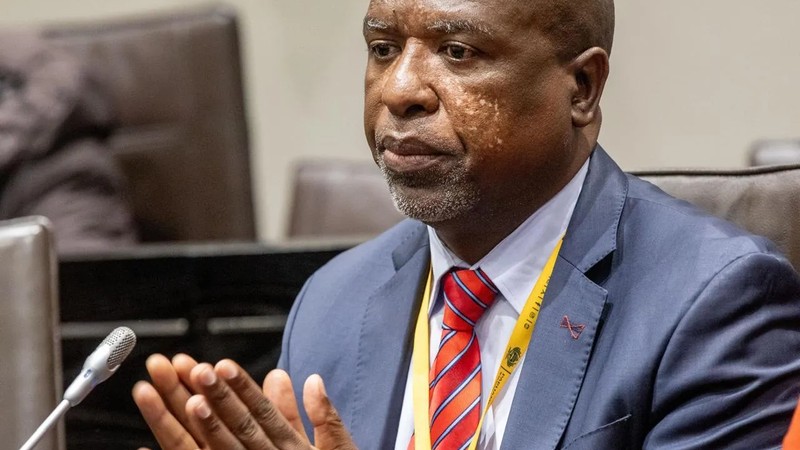
Parliamentarians will not be out of sync when they ask questions about the classified report of the Independent Police Investigative Directorate (IPID) into Phala Phala at the parliamentary inquiry that is probing allegations of corruption and political interference in the criminal justice system.
This was the word from Ad Hoc Committee Chairperson, Soviet Lekganyane, when there was a heated exchange amid body shaming, sarcasm, and harsh words among the members of the committee.
“It is true that if honourable members want to probe or inquire about alleged corruption, if there has been, they will not be wrong in terms of the terms of reference that we have adopted.
“Those are two issues that belong here to this meeting,” Lekganyane said in reference to the classified Phala Phala report.
This happened during the fourth day of testimony by suspended Police Minister Senzo Mchunu, when he was asked about the classified IDPI report on Phala Phala.
ANC MP Khusela Sangoni-Diko revisited the classified report when she made Mchunu restate his earlier testimony that the IPID director classified the document and that the watchdog body probed police conduct.
Mchunu said one had to wait until IPID declassified the document upon review of their decision.
He also said IPID classified the Phala Phala report independent of himself, while there were parallel investigations by investigation bodies.
EFF leader Julius Malema said if there was corruption at IPID, including on the Phala Phala report, MPs were within their right to raise it in the inquiry.
Malema said his party held the view that the Phala Phala report was wrongly classified and there was no justification for its classification as “classified”.
ANC Chief Whip Mdumiseni Ntuli noted that the IPID report has sometimes been a reference point during the inquiry.
He echoed Malema’s sentiment that the issue of Phala Phala was within the terms of reference of the inquiry in whatever way it arises.
Responding to questions, Mchunu said there were other directives when he was appointed to the department last year, including that which ordered the disbandment of the Political Killings Task Team (PKTT) last December.
Mchunu has testified that there was a work study that recommended a new organogram with specialised units and the disestablishment of the PKTT.
Asked whether in his handover report, former minister Bheki Cele had given reasons why he did not disband the task team, Mchunu said: “Not really, we did not delve into that matter.”
Mchunu said Cele had, in his handover report, indicated the Inter-Ministerial Committees (IMCs) he had served on, including the one on the political killings, as minister of police, among other things.
He maintained that the term of the previous IMC led by Cele ended when the term of the sixth administration expired.
Mchunu said when the Cabinet reconstituted its committees after the 2024 elections, the IMC on political killings was not mentioned.
